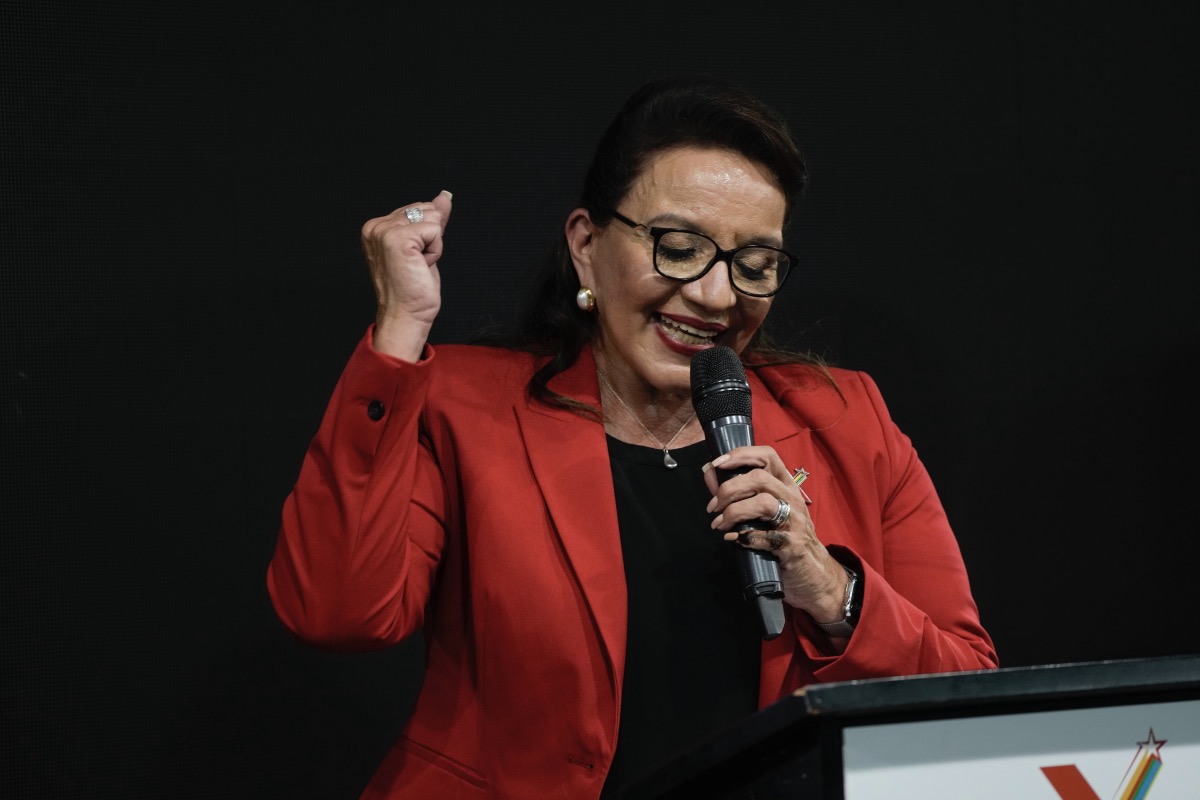

Honduran President Xiomara Castro (AP Photo/Moises Castillo)
TEGUCIGALPA, Honduras — After a 13-year total ban, on Wednesday, International Women’s Day, Honduras‘ first woman president, Xiomara Castro, legalized the use and distribution of the emergency contraceptive pill, also known as the morning-after pill —or PAE, in Honduras— for everyone in the country.
“We are inspired by President Xiomara’s bold action to legalize the emergency contraceptive pill on International Women’s Day. We trust that this is just the tip of the iceberg for the gains in women’s rights under her leadership. Today marks a new dawn for the women and girls of Honduras,” said Paula Avila-Guillen, international human rights lawyer and executive director of the Women’s Equality Center. “The time has come for Honduran women and girls to be treated as first-class citizens, to stop being neglected by their government, and to be able to make their own decisions about their bodies and lives without fear of violence or persecution.”
Honduras is one of the most dangerous places in the world to be a woman, with high rates of child sexual violence, femicide, and violence against women. In 2009, a military coup plunged the country into crisis and reversed the advances made for women’s rights, including the banning of emergency contraception under any circumstance, even in cases of rape and incest.
“The election of President Xiomara was a ray of hope for women in Honduras, and now the legalization of the emergency contraceptive pill has confirmed our expectations and strengthens our fight for basic human rights for the women in the country,” said Jinna Rosales, member of the Grupo Estratégico por la PAE.
The United Nations estimates that between 51,000 and 82,000 Honduran women and girls risk unsafe abortions each year. In 2017, almost 9,000 women were hospitalized in Honduras because of abortion complications, according to the latest data available from the public health ministry. This past October, the UN Committee on the Elimination of Discrimination against Women published its findings on Honduras and urged the country to end the criminalization of abortion and to allow the distribution of emergency contraception in the country in all circumstances.
In 2019, Honduran activists launched an advocacy campaign called “Hablemos Lo Que Es,” or “Let’s Talk About It,” to help dismantle the myths and misinformation in Honduran society regarding the emergency contraceptive pill. The campaign seeks to communicate with decision-makers and generate public action to motivate support, by collecting signatures, demonstrations, and other tactics.
The campaign has made great strides in the region, and with the help of Avaaz, collected almost 750,000 signatures in favor of the legalization of the emergency contraception pill for all in Honduras. Yesterday, International Women’s Day, 14 Honduran feminist organizations met with President Castro to present the signatures collected.
***
The Women’s Equality Center supports communications and campaigns on reproductive health, rights, and justice. Currently, the organization engages in initiatives in Latin America that have total bans on abortion including El Salvador, Honduras, and the Dominican Republic, and other countries in the region where abortion access is extremely limited.


